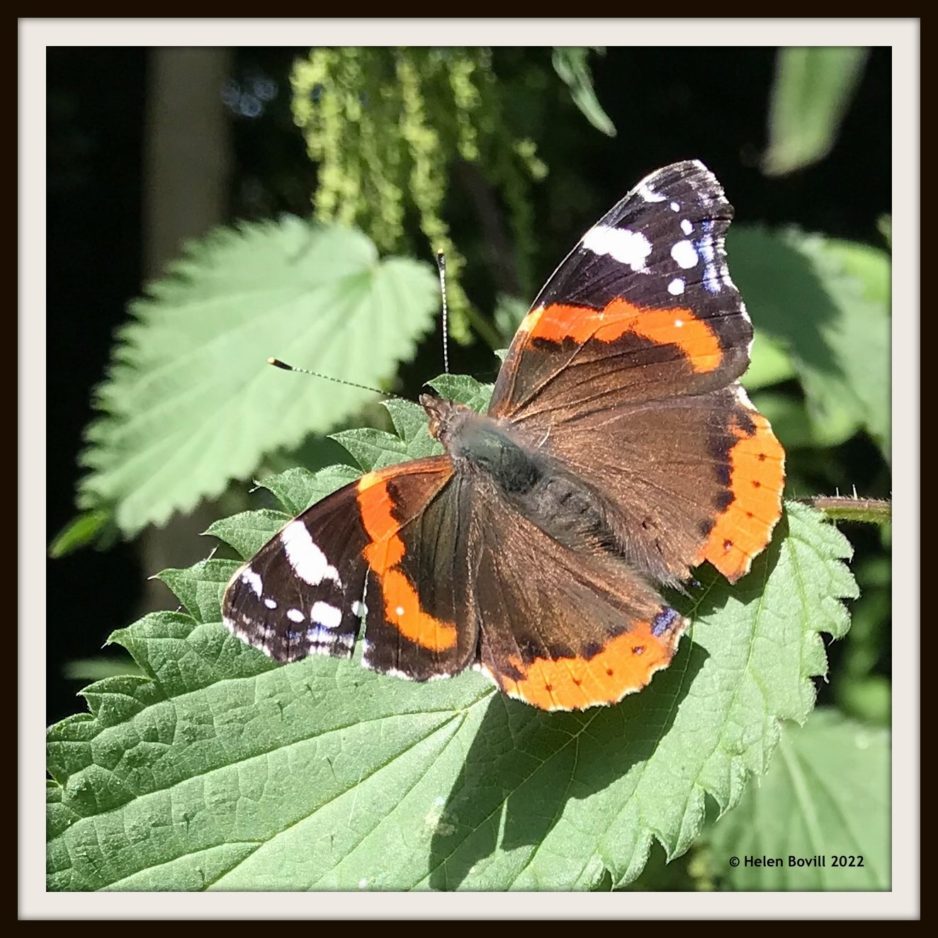There has been some fine sunny weather this month. Whilst not quite hot enough to describe as a heatwave, the temperature did reach over 25 degrees on a few days. This has left the footpaths and the grass verge very dry as there has not been any significant rainfall this month. Many of the Spring plants have now stopped flowering, leaving lots of seeds for the cemetery wildlife to eat.
Insects
I saw my first Red Admirals of the season in the cemetery. The one above was in a sunny area near the volunteers’ cabin. There were also some Speckled Woods around, and I saw a Large White on the Spring Bank West grass verge. 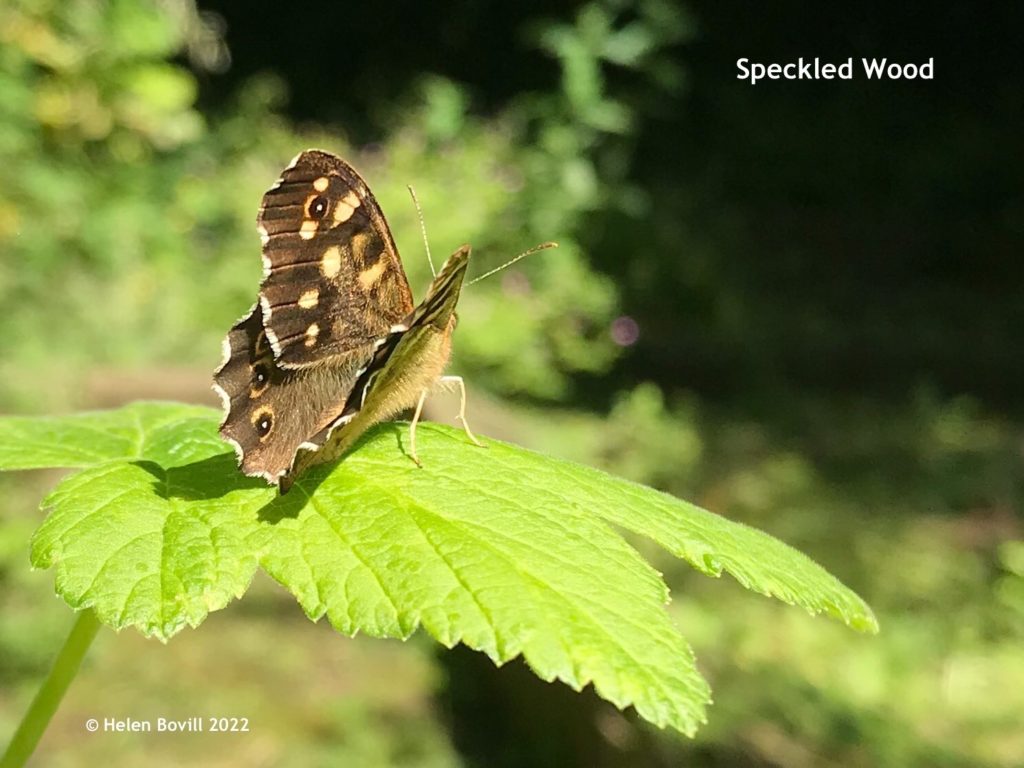
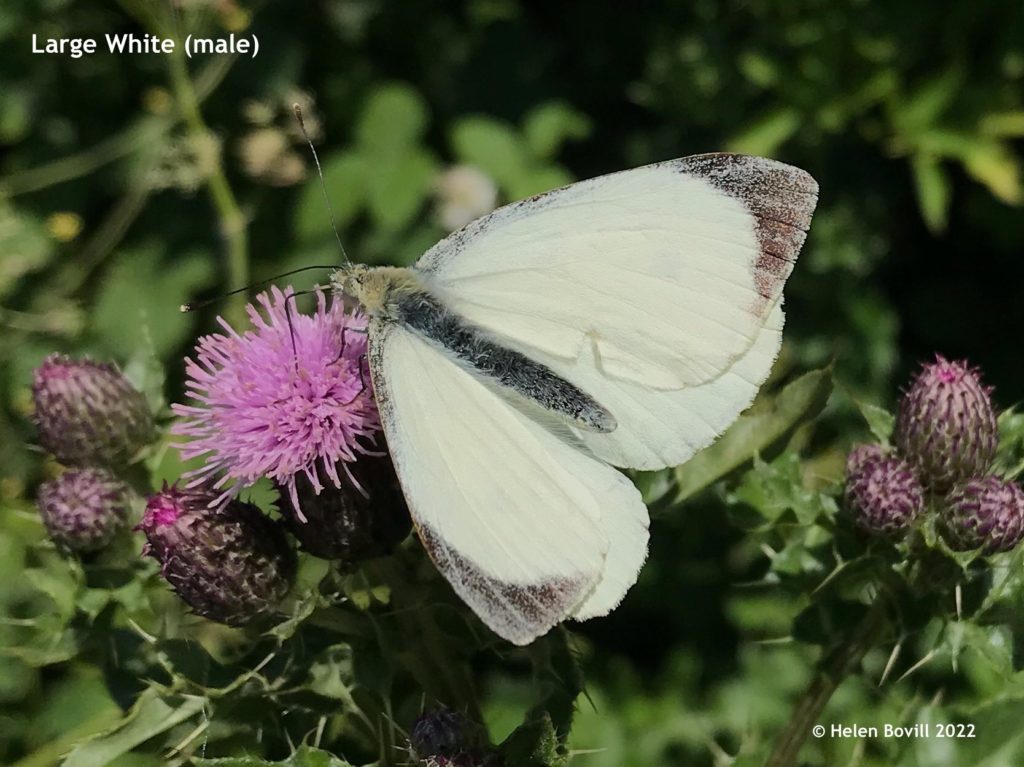
June can be rather a quiet month for Butterflies. The ones that emerged earlier in the year will have mated, laid their eggs and then died. The period between that and the emergence of the next generation from July onwards is known as the ‘’June gap’’. I’ve certainly found this to be the case, not just in the Cemetery but in other areas as well.
However, there were still plenty of other flying insects around.
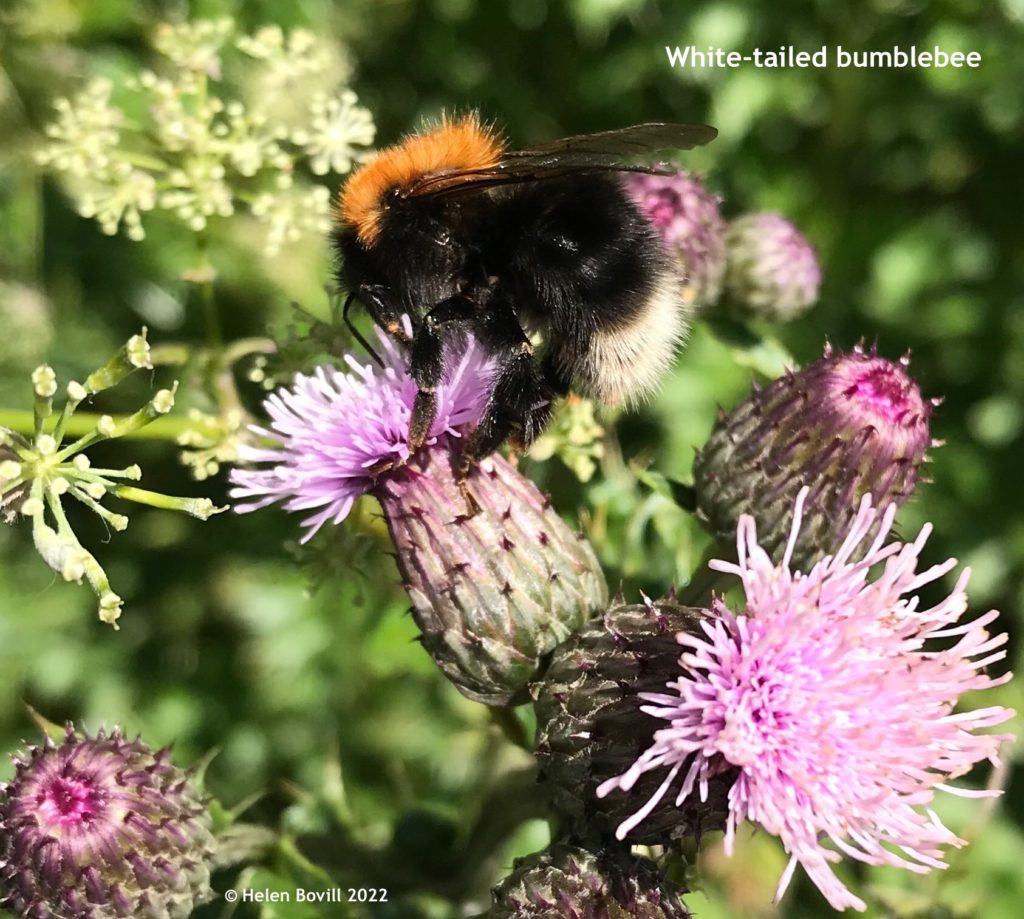
I also found an insect I hadn’t seen before – a Plant Bug, which is the size of a Ladybird. It doesn’t seem to have a specific common name, so I’ve included its scientific name on the photo. This one is a female – the males are usually a lot darker. They’re fairly new to this country, being first identified in 1996.
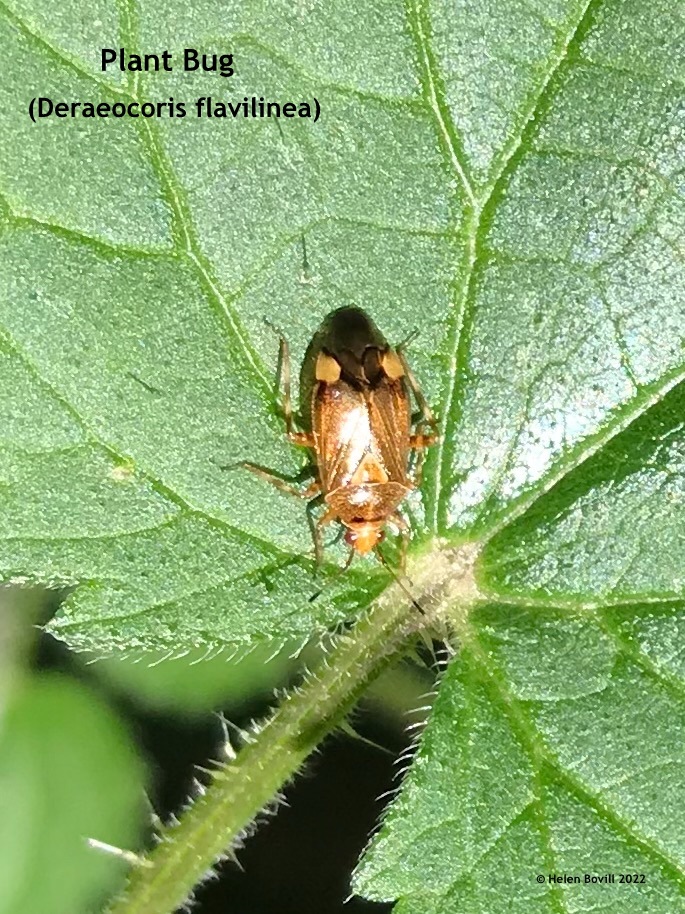
I also found a different type of Ladybird – this Cream-spot one. It’s a native British species, identified by its maroon-brown colour and the 14 cream spots on it.
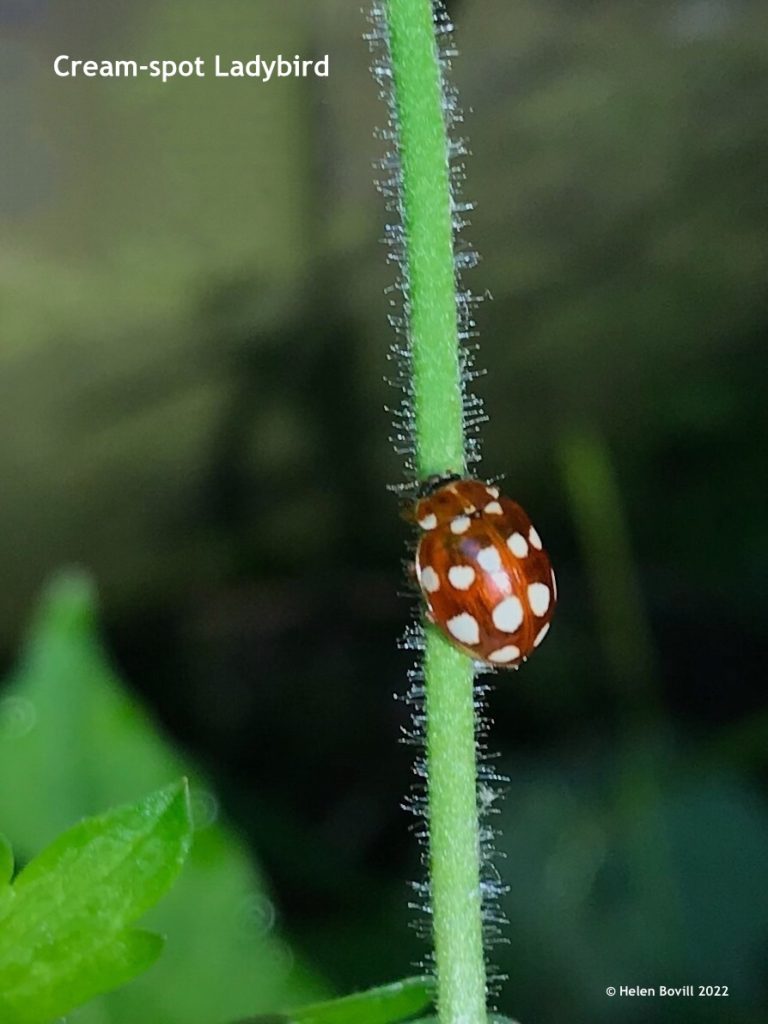
Plants
Some Poppies are now flowering in the grassy area in the centre of the Cemetery. Alongside the Red Campions and Buttercups, they add a nice splash of colour to all the lush greenery.
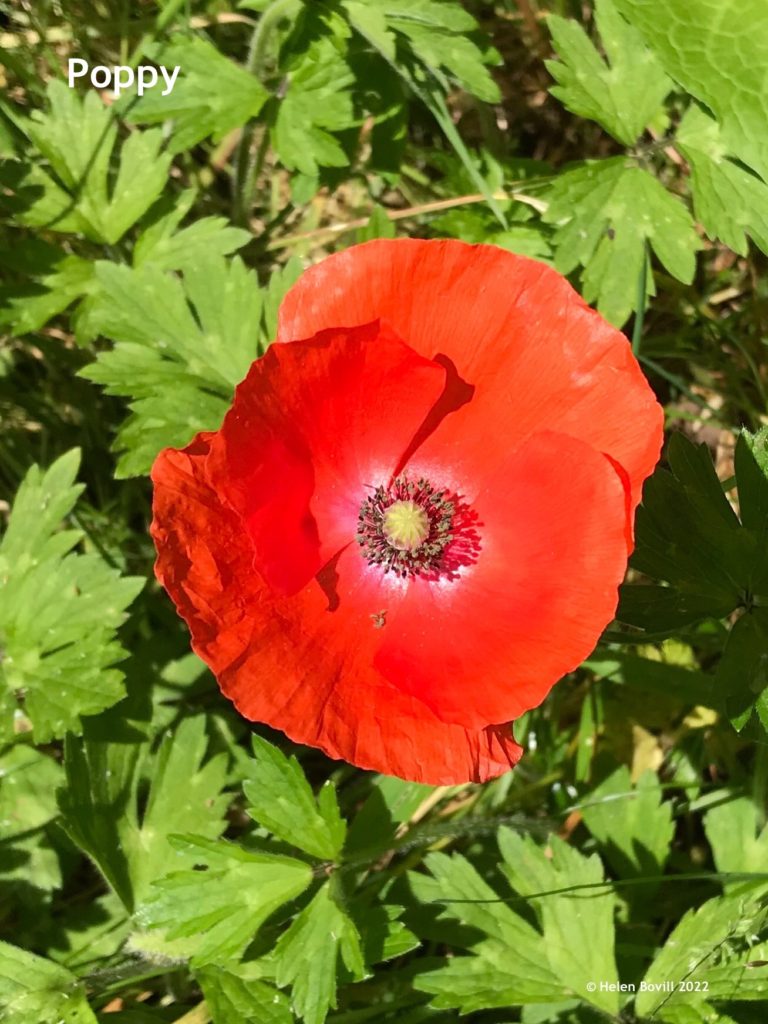
The cemetery can sometimes look a bit tired at this time of year. This is because the Spring flowering plants have now started to die back and in particular the Wild Garlic, Cow Parsley and Hogweed. The grass verge can also look a little tired too. But other plants have now started to flower such as the Creeping Thistle you can see on the White Butterfly and the Bee photos. There is also White Clover, Common Mallow and Ragwort growing in this area.
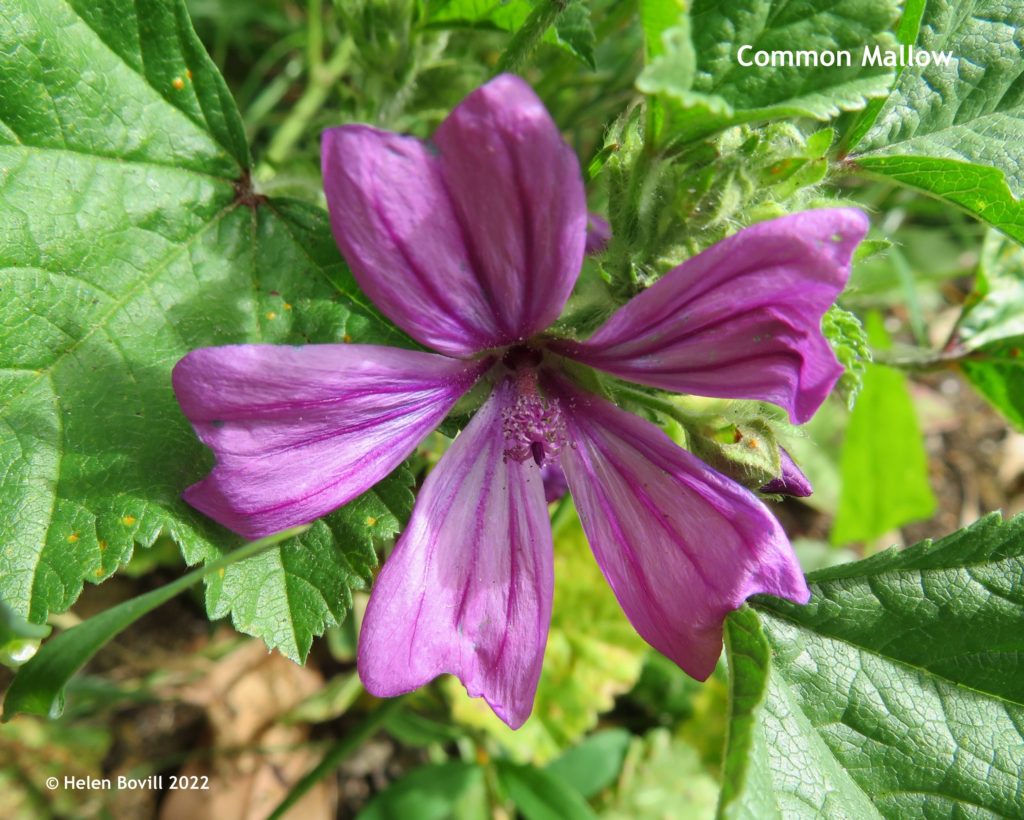
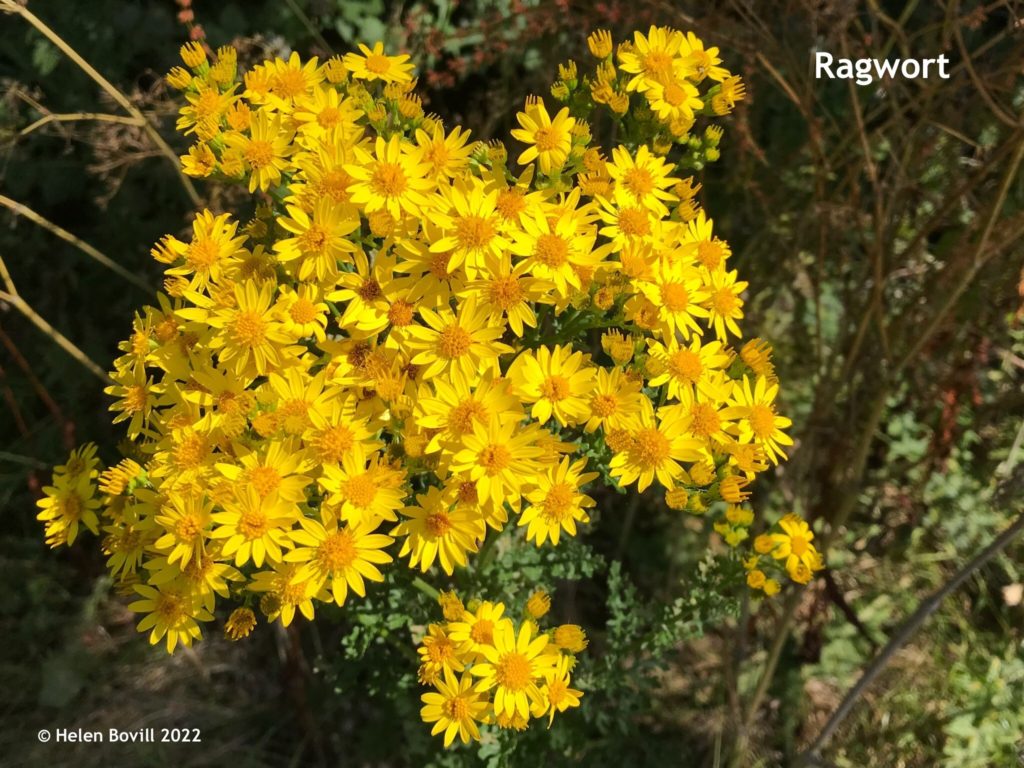
To give this area a boost, the Council provided the volunteers with a good selection of native wildflowers to set along here and this has now been done. Due to the lack of rain I’ve had to go back and water them a few times on each of the hotter days. I hope we get a decent amount of rainfall sooner rather than later!
Birds
The birds have been very active this month. I’ve seen them gathering nesting material and also collecting food for their hungry chicks. Some of the birds are very vocal too, especially the Song Thrushes, Blackcaps, Wrens and Robins. An early morning walk is highly recommended – go nice and early and you can often have the whole place to yourself, with just the birds and other cemetery wildlife for company.
The dense foliage on all the trees makes the birds rather difficult to photograph. They are very much a case of heard but not seen. Well, maybe just a brief glimpse!
I haven’t seen any unusual birds this month, just the regular Blue Tits, Great Tits, Dunnocks, Blackbirds, Crows, Magpies, Wood Pigeons and Stock Doves in addition to the ones mentioned earlier. Chaffinches are another common species in the cemetery.
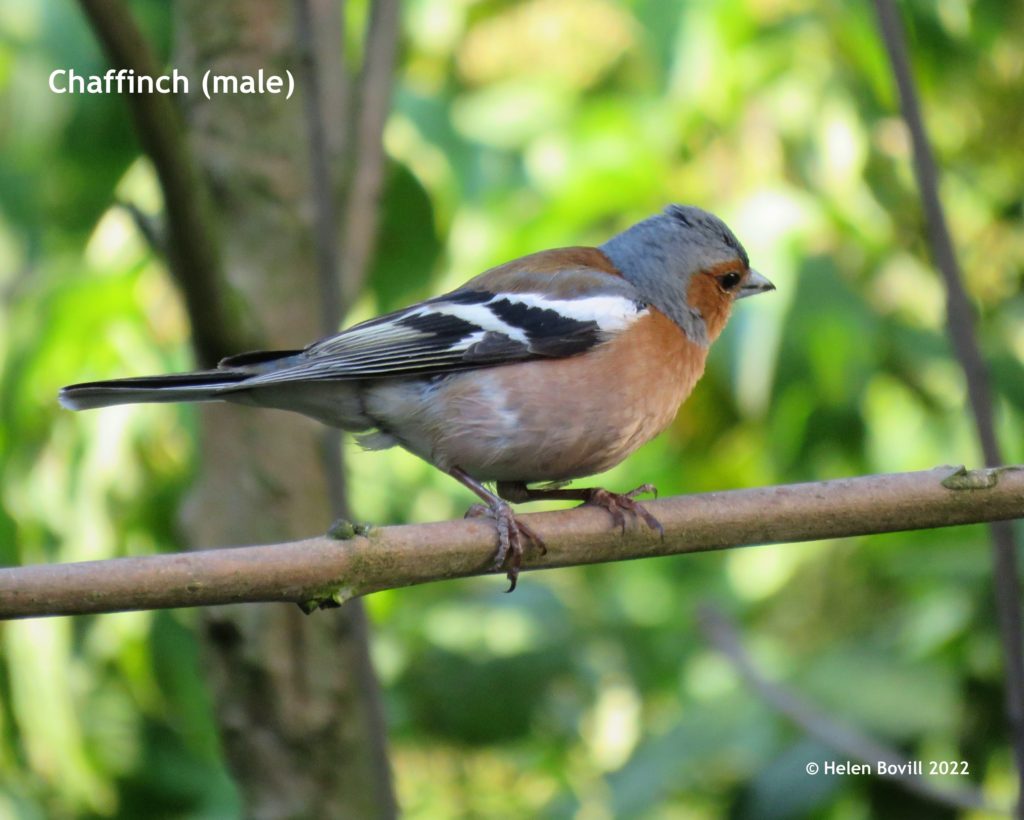
Fungi
There hasn’t been much to report recently, but I did find a Dryad’s Saddle later on in the month. It wasn’t as large as some of the specimens I saw last year but it was still a nice surprise to see it. Note the hole – obviously this is a good source of food for the cemetery wildlife, although I’m not sure which species.
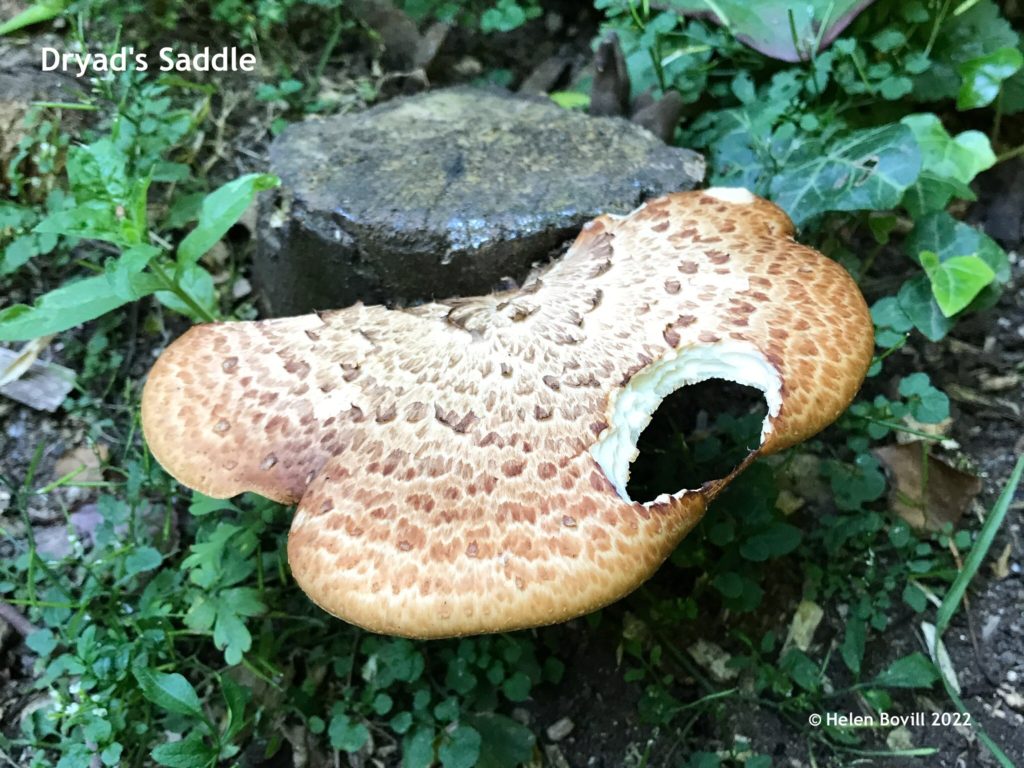
Conclusion
June has been a warm, dry and sunny month, creating the perfect conditions for the flora and fauna in the cemetery. The birds are around in good numbers, and I’ve seen some fledglings exploring the world outside their nests.
And finally, it’s nice to see one of the fallen logs being used by creatures that won’t leave any litter scattered around it!
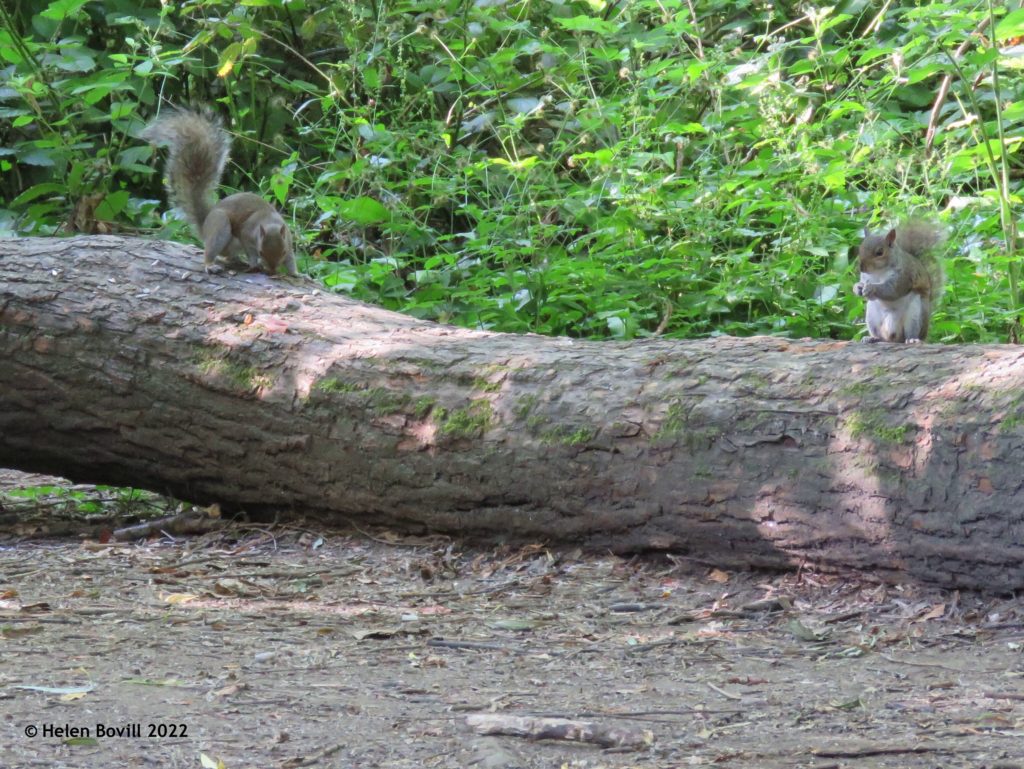
Cemetery wildlife – May 2022


